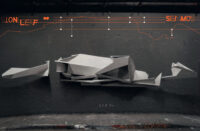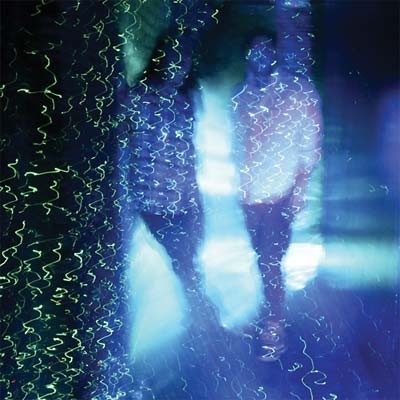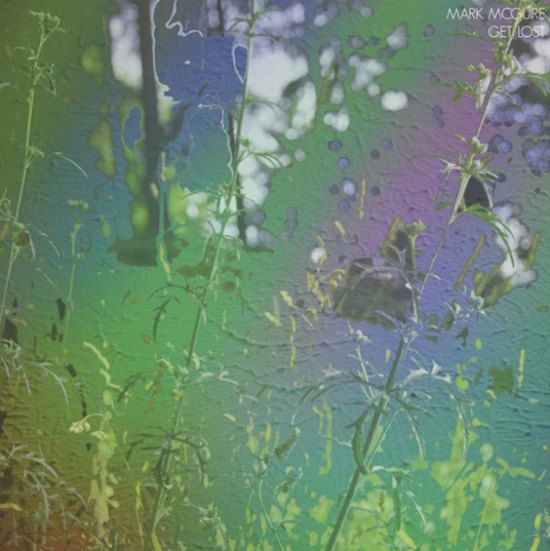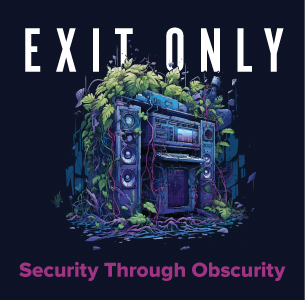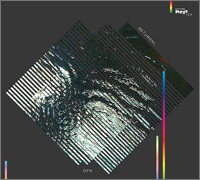
(June 2010) Daniel Lopatin is a purveyor of sorts. For a few years now, he has been providing nostalgic synthesizer music for thirsty ears in the wake of Boards of Canada’s absence. His music is retrofuturistic – it is the sound that music makers of the past would have used to imagine a future dominated by technology. So… like Vangelis, basically, but updated to reflect the fact that predictions of the future from the 80’s never came true. Lopatin’s work differs from his precursors because his has a mildly dystopian tinge – there’s a pervasive feeling that whatever he’s describing with his music will never exist outside science fiction movies.
Rifts, the album which served as a general introduction to Lopatin’s work, was a juggernaut. Collecting close to everything Lopatin had released on absurdly limited tape or vinyl runs over the past few years and getting an unbelievable amount of press and praise, it conjured images of Lopatin standing triumphantly over the mountain of experimental musicians releasing tape after tape, saying, “What.” This victory was pretty well-deserved, as Rifts filled a niche no one seemed to be willing to fill – that is, Vangelis worship updated for the increasingly nostalgic mindset of the naughties. Not that that’s a bad thing. Rifts evoked vivid feelings of technology-infused rituals, ennui and love in the post-millennial world, and epic journeys across prehistoric landscapes – all of which no one had done before with as much precision and success. But what do you do after such an exhaustive look at your capabilities as a producer, one that seemingly left no territory unexplored?
Well, you follow it up with Returnal, I guess.
Returnal is simultaneously an evolution of Lopatin’s style and the safest thing he could have done. When I say “evolution,” though, I really mean a lateral step – Lopatin here still seems content to give listeners more of what they want. He’s still using the same synthesizers – his trusty Akai AX-60 and Roland Juno-60 are by his side. And he’s still exploring the same ideas he did in Rifts – lost futures from a digital golden age – but from slightly different angles. “Pelham Island Road” throws a shamanistic veil over the same foreboding, hazy landscapes he explored in “Ships Without Meaning” in Rifts, and “Where Does Time Go” feels like a look at that landscape with better lighting and clearer arpeggios. The same goes for “Describing Bodies” and “Stress Waves,” too – there aren’t any clear analogues to specific pieces, but the overall feel and sound is a little too close to that of some ambient segments of Rifts.
I will say this, though: the title track on Returnal is the album’s most interesting piece. This is not only because it is the only track that actually furthers this retrofuturistic obsession of Lopatin, but also because it looks at the actual relationship between people and technology. It’s almost a ballad, morphing Lopatin’s own voice into what almost sounds like a synthesizer itself. Also, whatever synthesizer he uses on “Returnal” manages to break away from the uniformly retro sound of the rest of the album (and that of Rifts, too), which is a nice change of pace and a taste of what Lopatin is really capable of. And “Nil Admirari” is a brilliantly executed fake-out. As the first track it sets a tone wholly different from the rest of the album – noisy, chaotic, and warped beyond recognition. It is absolutely brilliant, though, and I was disappointed by the rest of the album because I thought Lopatin was going to buck all expectations and create a noise album that somehow still carried the retrofuturistic torch of Rifts. Now that would have been exciting.
As for the rest of the album, however, it’s painfully clear that Lopatin’s approach is showing signs of wear. By the time “Preyouandi” rolls around I feel exhausted. Perhaps this video is appropriate: there’s an eerie sense of false memory, the resolution of the video is just like VHS, there’s stock footage of rituals, and the whole time you think you might be watching an educational film on acid. This aesthetic is well-done in the video and on Returnal as a whole, but in the end, it leaves me dry. After all, looking back and rehashing the past is only entertaining for so long. I have to ask: is anything really being created here?
Returnal is out now on Editions Mego. [Listen | Purchase]








